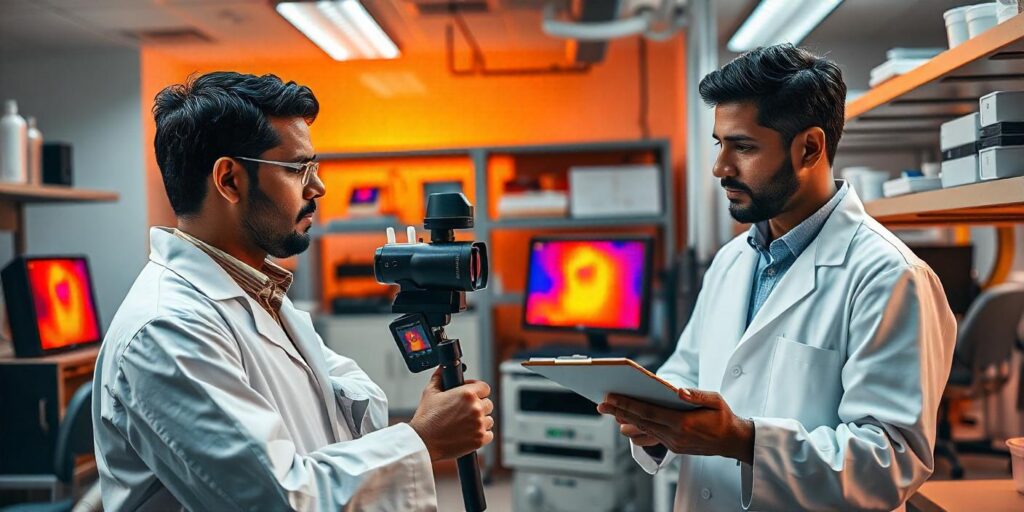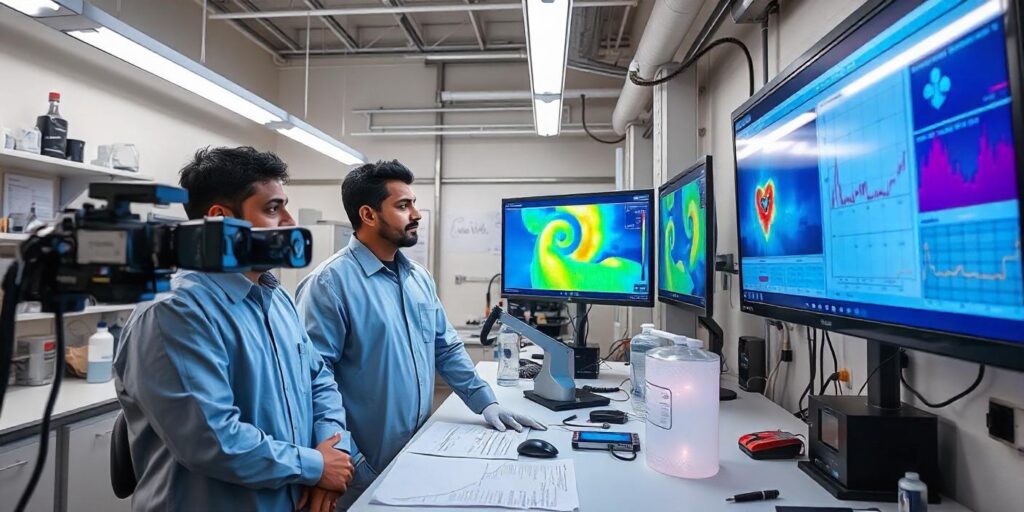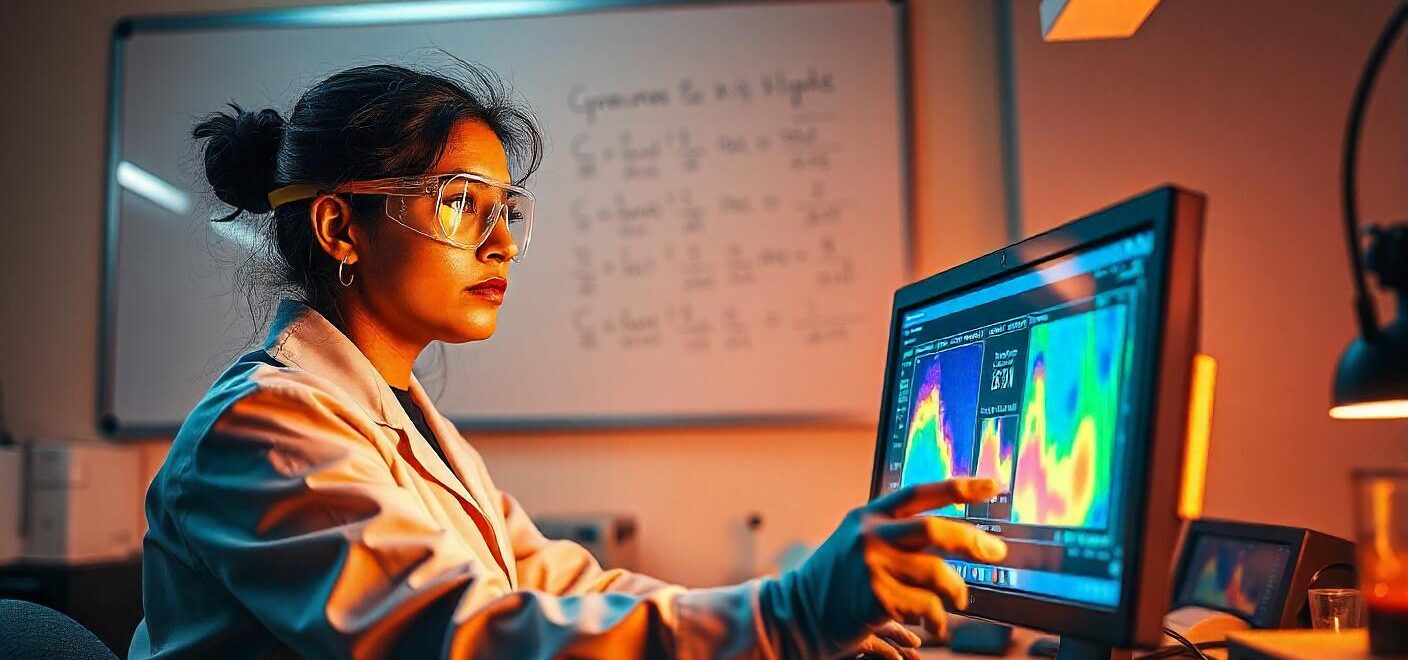Thermal validation is an essential process in industries such as pharmaceuticals, biotechnology, and food processing, where precise temperature control is crucial to ensure product quality and regulatory compliance. Despite its importance, many professionals still have questions about the process, its challenges, and how to achieve optimal results. In this blog, we answer 10 burning questions on the process to help you gain a deeper understanding.
1. What is Thermal Validation, and Why is it Important?
Thermal validation is the process of verifying and documenting that temperature-controlled equipment, such as autoclaves, freezers, ovens, and cleanrooms, operate within specified limits. It ensures that critical processes achieve the required thermal conditions for sterility, stability, and quality.
Key Importance:
- Ensures compliance with regulatory standards (FDA, EU GMP, etc.)
- Guarantees product integrity and safety
- Prevents costly product recalls and failures
- Enhances operational efficiency and reduces downtime
- Provides traceability for audits and inspections
2. What are the Key Steps involved?
Thermal validation typically involves the following steps:
- Risk Assessment: Identifying critical control points and potential failure areas through a thorough analysis of process requirements and regulatory guidelines.
- Installation Qualification (IQ): Ensuring equipment is installed correctly and meets design specifications by verifying calibration, documentation, and hardware integrity.
- Operational Qualification (OQ): Verifying that equipment operates as intended within predefined limits under varied operational conditions.
- Performance Qualification (PQ): Confirming consistent performance under real operating conditions to establish repeatability and robustness.
- Documentation and Reporting: Recording findings meticulously to demonstrate compliance, identify improvement opportunities, and provide traceability for future audits.
Read More: 8 Secrets You Must Know for Best Thermal Validation Results
3. Which Industries Require Thermal Validation?
Thermal validation is a regulatory requirement in various industries, including:

- Pharmaceuticals: Sterilization of drugs, medical devices, and lab environments to prevent contamination and ensure efficacy.
- Biotechnology: Ensuring optimal storage and processing of biological materials such as vaccines and enzymes.
- Food Processing: Maintaining safe temperature conditions to comply with food safety regulations and extend shelf life.
- Healthcare: Monitoring sterilization processes in hospitals and clinics to ensure patient safety.
- Aerospace: Ensuring the stability of temperature-sensitive materials used in manufacturing processes.
- Cosmetics: Validating the preservation of temperature-sensitive ingredients in production and storage.
4. What Regulations Govern Thermal Validation?
Thermal validation must comply with multiple international regulations and standards, such as:
- FDA 21 CFR Part 11: Requirements for electronic records and signatures to ensure data integrity.
- EU GMP Annex 15: Guidelines for qualification and validation, focusing on risk-based approaches.
- ISO 17025: Calibration and testing requirements to ensure consistency and accuracy.
- WHO Guidelines: Global best practices for thermal validation, ensuring patient and product safety.
- ICH Q9: Risk management framework in the pharmaceutical industry for ensuring compliance and quality.
Read More: Top 10 Challenges in Thermal Validation and How to Overcome Them
5. What Are the Common Challenges?
Despite its importance, validation in thermal processes presents several challenges:
- Inconsistent Temperature Distribution: Ensuring uniform heating/cooling across equipment can be complex.
- Regulatory Compliance: Keeping up with evolving guidelines and regulatory expectations.
- Data Integrity Issues: Maintaining accurate and tamper-proof records to meet audit requirements.
- Equipment Calibration: Regular calibration to avoid deviations and ensure accuracy.
- Resource Constraints: Managing qualified personnel, time, and costs efficiently.
- Environmental Factors: External influences such as ambient temperature fluctuations can impact results.
6. How Often Should Thermal Validation Be Performed?
The frequency of thermal validation depends on regulatory requirements and risk assessments. Common triggers include:
- Initial qualification of new equipment
- After significant equipment modifications
- At regular intervals (e.g., annually, biannually)
- Following an out-of-specification (OOS) event
- During process scale-up or technology transfer
- When environmental conditions change significantly
7. What Are the Best Technologies available?
Cutting-edge technologies are enhancing thermal validation processes, including:
- Wireless Data Loggers: Real-time monitoring, remote access, and improved accuracy.
- Automated Thermal Mapping Systems: Reduced human error and increased repeatability in complex environments.
- IoT Integration: Predictive maintenance, continuous monitoring, and real-time analytics.
- Cloud-Based Solutions: Centralized data storage, easy access, and enhanced collaboration.
- Advanced Thermal Imaging: Identifying potential heat distribution issues without intrusive testing.
8. How Do You Ensure Data Integrity in Thermal Validation?
Maintaining data integrity is crucial to avoid compliance issues. Best practices include:
- Using validated software with audit trails to track all changes
- Implementing strict access controls and multi-level authentication
- Regular backups and data verification to prevent loss
- Following ALCOA+ principles (Attributable, Legible, Contemporaneous, Original, Accurate, Complete, Consistent, Enduring, Available)
9. What Are the Consequences of Failing Thermal Validation?
Failure to meet thermal validation requirements can result in:
- Regulatory non-compliance leading to warning letters or product recalls
- Product failures compromising consumer safety and effectiveness
- Financial losses due to production downtime and revalidation efforts
- Reputational damage leading to loss of customer trust
- Potential legal liabilities and penalties
10. How Can You Choose the Right Partner for Thermal Validation?

Selecting the right validation partner is crucial for compliance and efficiency. Consider the following:
- Expertise and Experience: Proven track record in thermal validation across industries.
- Compliance Knowledge: Up-to-date understanding of global regulatory requirements.
- Advanced Technologies: Utilization of the latest validation tools and methods.
- Comprehensive Support: End-to-end services, including risk assessment, execution, and audits.
- Customer References: Testimonials and case studies demonstrating successful implementations.
Conclusion
Understanding the critical aspects of thermal validation is key to ensuring compliance, efficiency, and product quality. By addressing these common questions, businesses can implement effective thermal validation strategies and stay ahead of regulatory challenges.
How Incepbio Can Help
At Incepbio, we specialize in providing comprehensive thermal validation services tailored to your industry’s specific needs. Our expert team offers:
- End-to-End Validation Solutions: From risk assessment to final reporting.
- Cutting-Edge Technology Implementation: Wireless loggers, IoT integration, and cloud-based solutions.
- Regulatory Compliance Assurance: Ensuring adherence to FDA, EU GMP, and ISO guidelines.
- Customized Validation Protocols: Tailored solutions for your unique operational requirements.
- Training and Consultation: Empowering your team with best practices and compliance insights.
Partner with Incepbio to ensure seamless thermal validation processes that meet the highest industry standards.
Contact us today to learn more about our thermal validation solutions and how we can support your business.
Authors
-

-

An experienced SEO professional, Adithya is someone fascinated by the art of content creation. He has published over 700 articles under his name. Additionally, he has worked for companies like TCS, Essentially Sports, and holds expertise in the field of digital marketing
View all posts -

Arjun Jha has over 8 years of experience in tech startups, business strategy, and digital and traditional marketing. He’s helped many startups grow by using creative strategies and a deep understanding of the market. Outside of work, Arjun enjoys reading about business, philosophy, psychology, and spirituality, which inspires his unique approach to problem-solving and growth.
View all posts






